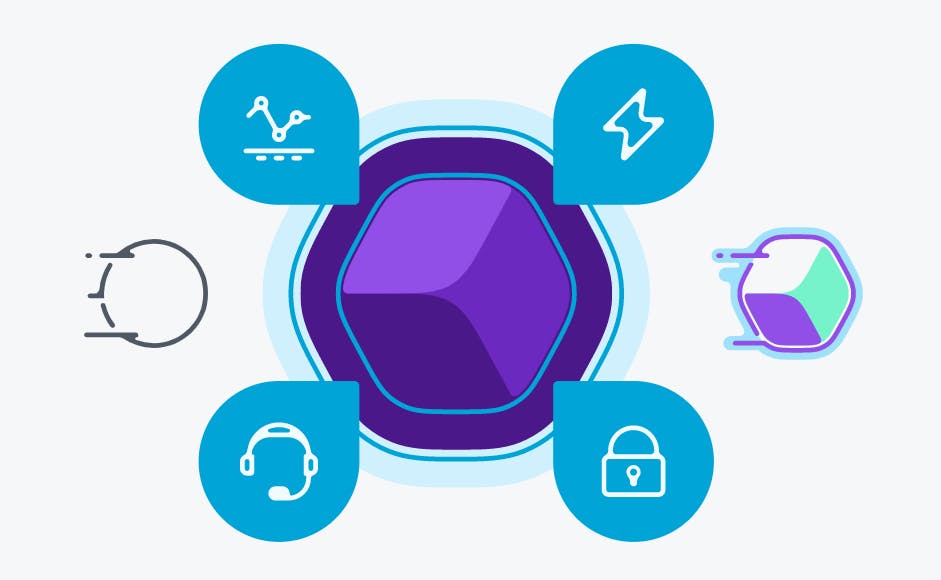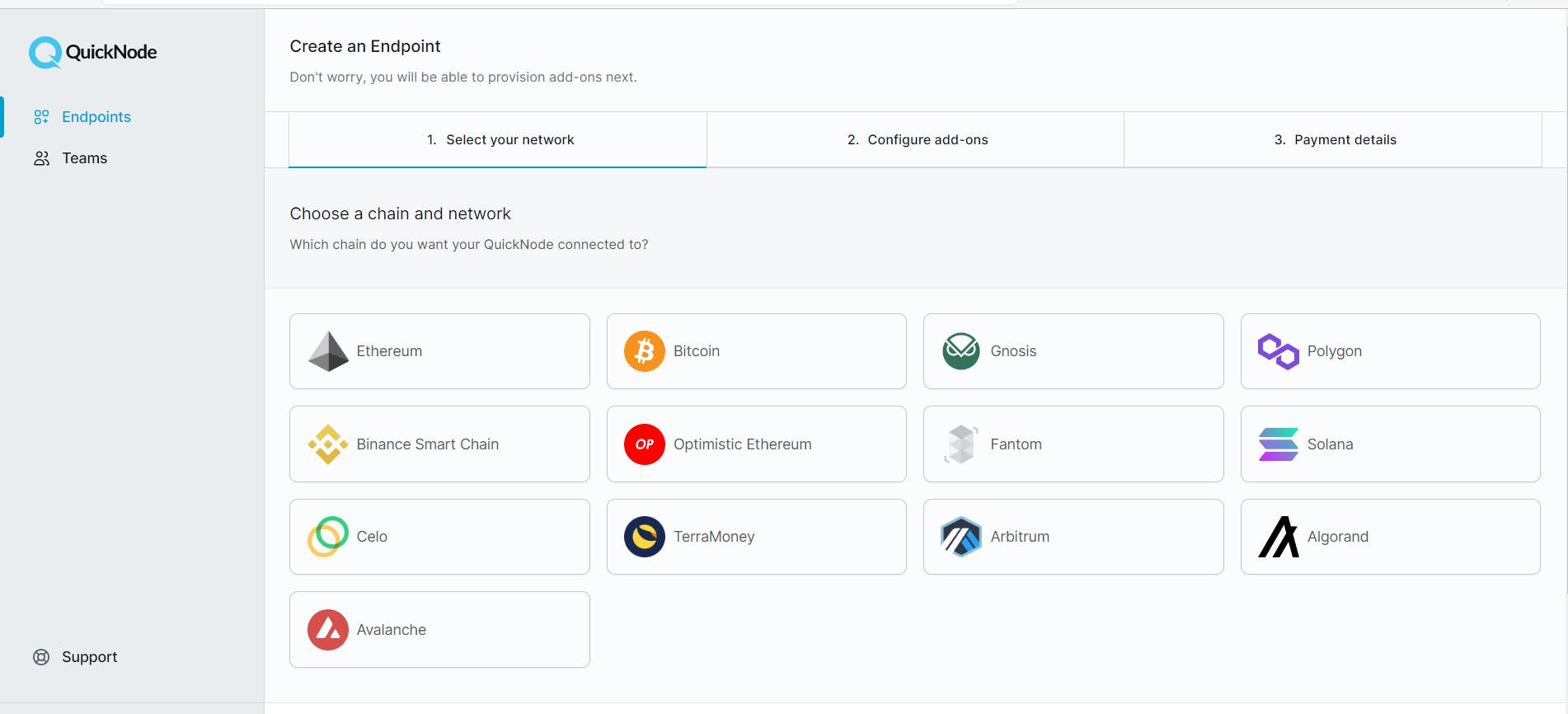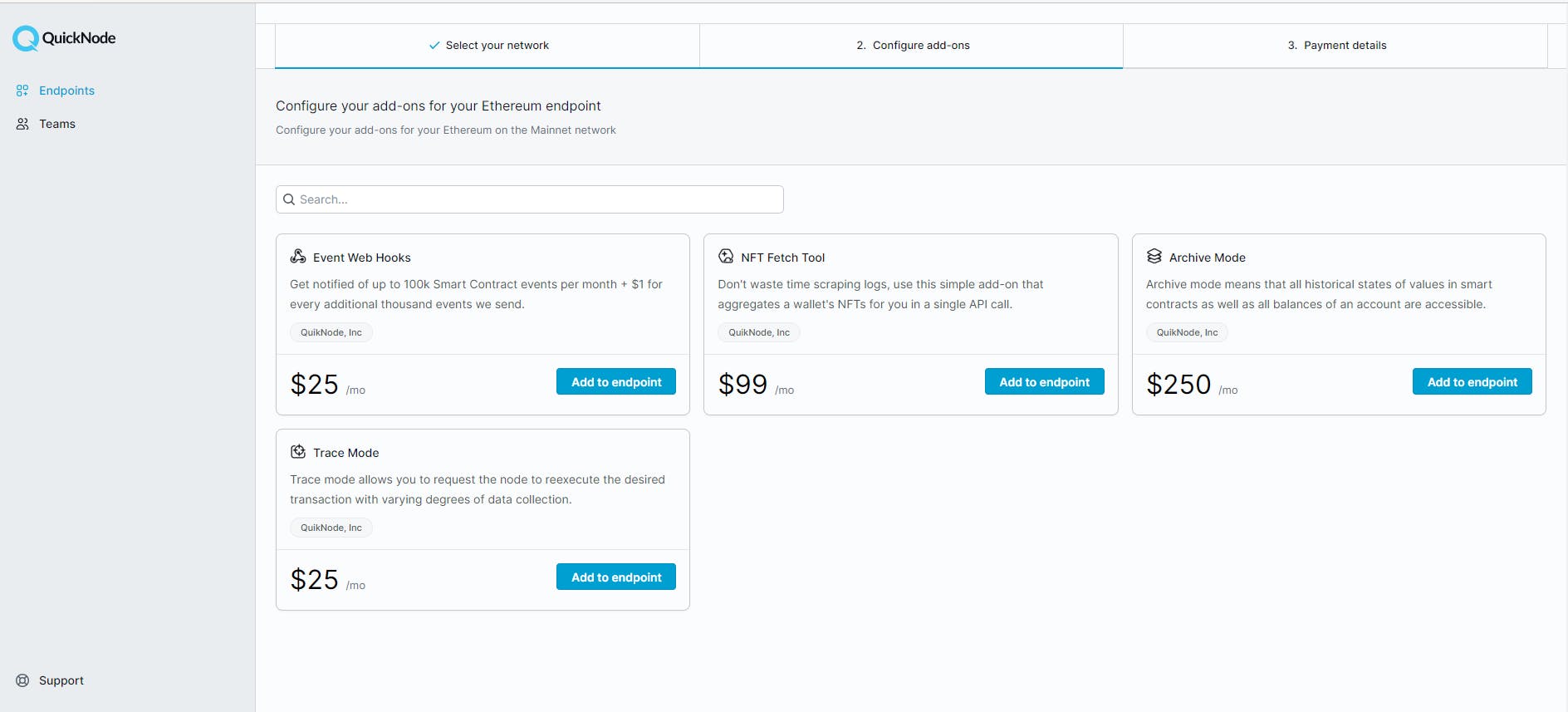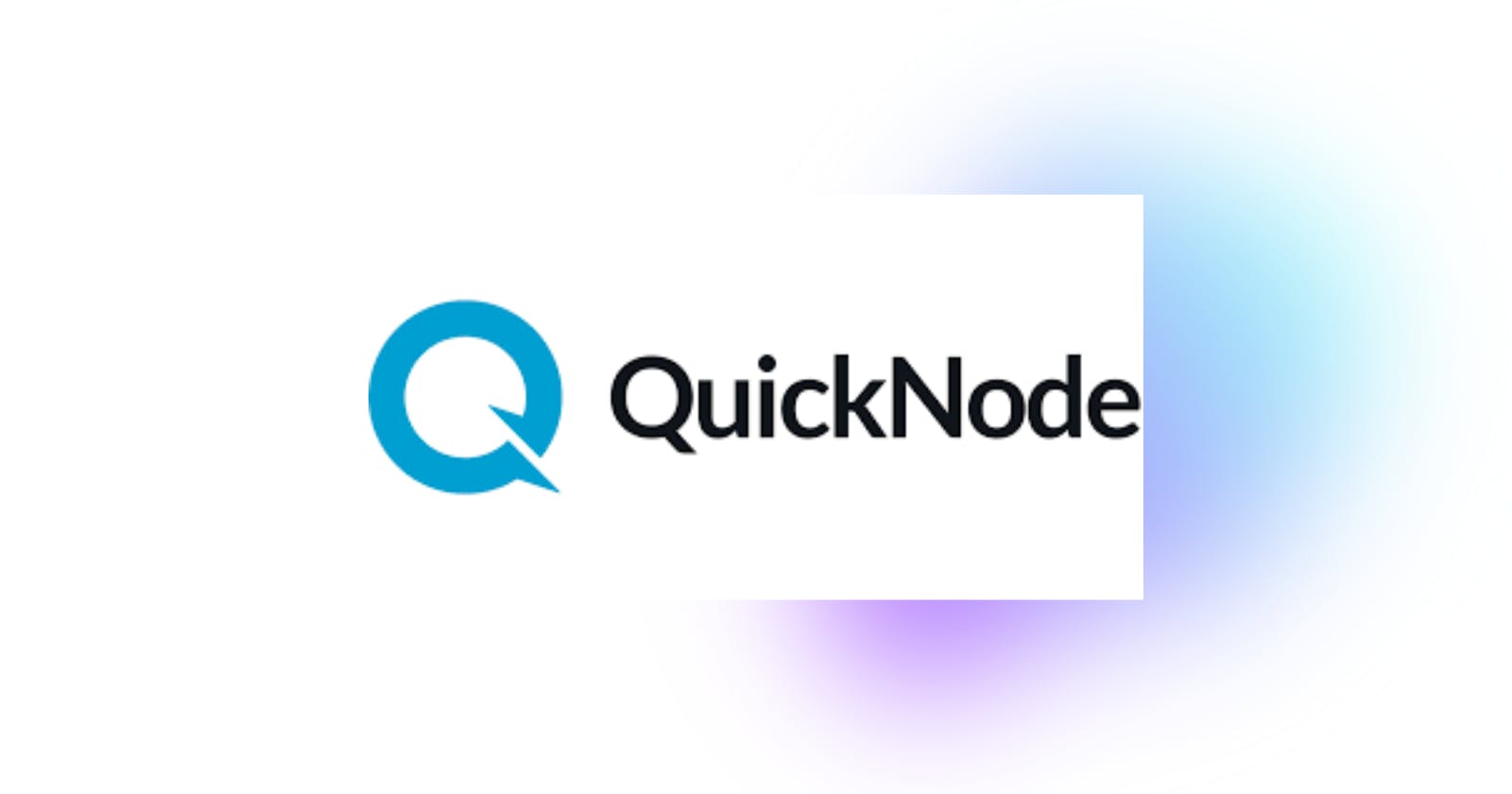Why your web3 project needs an Infrastructure provider, an overview of Quicknode.
Introduction
A blockchain network is a decentralized, single-state machine maintained by a distributed peer-to-peer network of nodes. A node is a computer running the blockchain’s client software. Nodes broadcast and verify the transactions in a network, manage the network consensus, and group transactions into blocks. They also store the record of the state (i.e. data) of the blockchain.
There are different types of nodes which include full nodes and light nodes. Full nodes store the full state of the blockchain, light nodes however do not store the entire state of the blockchain – they store just the block headers. The hardware and internet requirements of a full node are higher than that of a light node. Validator nodes (in proof of stake blockchains) or Mining nodes (in proof of work blockchains) are full nodes that confirm transactions in a blockchain and through consensus mechanisms mine blocks of transactions.
Smartcontracts are programs deployed on a blockchain, the execution of which changes the state of the blockchain. They are written in high-level languages, compiled into bytecode or assemblycode (depending on the process followed by a particular blockchain protocol) and deployed into the network. A deployed smartcontract – and its associated data, are kept by the mining nodes in the network.
Why do you need a node for your dApp
It is important to note that communication with a blockchain network can only take place through a peer node. To deploy smartcontracts, perform transactions, and read the blockchain state you need to do this through a node. To perform a transaction using the deployed smartcontract on a public blockchain network, we need to interact with a node in the network. This node receives our transaction request and then broadcasts it to the network for the transaction to be executed. Wallets like Metamask, Phantom etc. that are used to sign transactions with an account’s private key all connect to a default node.
Since you now understand the need for a node, the next question is how do you set up a node. Setting up a node can be done in-house or by subscribing to the services of a blockchain node as a service provider.
Challenges faced when running nodes in-house
The internet speed, memory & processor requirements to deploy a node can be high, especially with popular networks. It also requires system administration skills needed to perform operations such as maintaining the reliability of your nodes, performing upgrades, health monitoring etc. There also needs to be security measures in place to guard against vulnerabilities. The setup takes a long time and can go into weeks.
There is also a need for maintaining scalability as the number of user requests you handle grows. Scaling nodes has its peculiar challenges, and one of the issues faced by teams running more than one node is data consistency issues that arise when two nodes are out of sync and some nodes are ahead of others.
Introducing Quicknode – a blockchain node as a service provider
 |
| Quicknode is a node infrastructure provider with scalability, analytics, responsiveness, security, availability and 24/7 support as its selling points. |
Managing blockchain nodes can be a challenge to your team and to save time, money and resources it is recommended to opt for the services of blockchain node providers like Quicknode. A node provider helps with blockchain node infrastructure management – as a user, you gain access to fully synced, up-to-date and highly available and scalable nodes.
Used by Coinbase, Adobe, OpenSea, Chainlink, Quicknode is a cloud infrastructure as a service node provider with a wide array of network nodes across 14 chains than include Solana, Ethereum, Celo, Algorand, etc. Node spin-ups only take a few seconds in 3 easy steps.
 |
| Quicknode Node spin-ups only take a few seconds in 3 easy steps. |
With Quicknode, you may opt for dedicated nodes that always serve traffic from the same location, and there is also an option for your dApp to have access to Quicknode’s global network and the traffic is routed to the nearest available endpoint.
Along with its intuitive and easy-to-use user interface, quicknode offers a range of value-added services that would have required a great deal of effort to set up. These include analytics, NFT specific APIs that can be used to find any NFT, verify ownership, and pull transaction history and key collection information, without sorting through individual smart contracts.
 |
| Quicknode offers a range of value-added developer tooling as Add-ons |
Quicknode analytics provide insights into node availability and let you track and monitor requests to your node to identify smart contract methods that are called most often and when. High scalability means that the performance of your dApp does not degrade with increased users.
Certain network requests are also cached and indexed, resulting in reduced response time by as much as 10x. To solve the issue of concurrency usually faced when running multiple nodes in-house, Quicknode has middleware that ensures that data returned from network queries are accurate and consistent.
Globally balanced and user-location-based routing means speed and reliability comparable to traditional centralized applications. Quicknode claims to be faster than competitors in 65% of locations globally.
Lastly, Quicknode subscription pricing is usage-based (on the number of requests per month), and this has many cost savings and budgeting benefits compared to running an in-house node.
Conclusion
A blockchain node is essential for your dApp development, as communication with the blockchain network is routed through a node. Nodes can be provisioned in-house or by subscribing to the services of a blockchain node service provider, such as Quicknode. There are many benefits to using a node provider and Quicknode in particular provides additional add-on features that make them more suitable, reliable and scalable compared to in-house solutions.
Further Readings
The #1 Web3 Infrastructure Platform | QuickNode (medium.com)
QuickNode - Blockchain API and Node Infrastructure | Ethereum, Solana, Polygon, BSC + More

